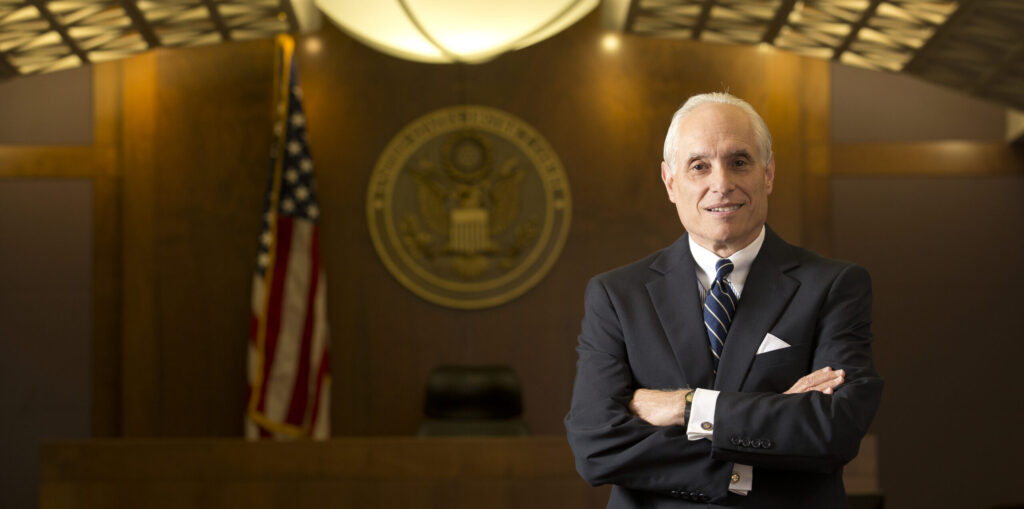In the wake of the murder of George Floyd in Minneapolis, Minnesota on May 25, 2020, and the collective outrage that echoed across the country demanding justice, Pennsylvania Governor Tom Wolf made a public commitment to prioritize accountability, transparency, and wide-spread criminal justice reform across the state. Following this announcement, in July of 2020, Governor Wolf signed an executive order creating the Pennsylvania State Law Enforcement Citizen Advisory Commission.
The Commission, housed within the Pennsylvania Office of State Inspector General, was tasked with making policing more transparent, creating stronger community connections, and looking in-depth at police activities. This includes looking closely at the current policies, training exercises, and recruitment strategies used by state police agencies. The commission has 21 voting members, including one representative from each of the Pennsylvania State Police’s current 15 Troop geographic areas, and six citizen members chosen at large. Among those voting representatives is Professor Emeritus David A. Sonenshein, who, as a nationally respected scholar and advocacy educator, brings a trained eye and skilled expertise to the Advisory Commission.
Public service has always been important to Sonenshein, who previously served as the Chair of the Lower Merion Township Board of Commissioners. In his current role, Sonenshein serves as the Chair of one of the three Commission sub-committees. The cases reviewed by this committee are a random sampling of non-fatal incidents involving the use of force spanning from 2016 to 2019 that have been investigated and resolved. It is the committee’s responsibility to evaluate how transparent, fair, and complete the case process was. They look to see if the review was impartial, timely, and consistent with policies, practices, and procedures. The committee members, after reading the completed internal affairs reports, then meet with the agency and discuss their preliminary findings on both the case and the incident. After meeting with the agency, the committee issues a final, public report with their training and policy recommendations that is voted on by the entire Commission. If approved, the recommendations move forward to the Governor and state police.
With a teaching career spanning 40 years and two continents – he has visited at five European law schools, teaching Comparative Criminal Procedure, and has attended Police Interviewing (Interrogation) Detective Training at London’s Scotland Yard – simulation training is especially important to Sonenshein. In order to personally observe the training of the new cadet class, he developed a relationship with a State Police training unit in Hershey, Pennsylvania. There, he watched exercises and met with the training unit. Through this on-site observation, Sonenshein provided first-hand reports regarding State Police training on the Use-of-Force for his committee, a subset of the larger Commission.
“Adult education in the last ten years or so has become scenario-based,” said Sonenshein, that is “learning by doing kinds of training as opposed to lectures.” This is the training methodology adopted by the State Police Training Unit and it particularly resonates with him as it’s the method he used to teach Trial Advocacy, Evidence, and Criminal Procedure to lawyers and law students. The cadets who undergo realistic, scenario-based training to shape their reactions should be better prepared to respond to fast-evolving incidents.
This Commission, says Sonenshein, has given representative citizens a much better sense of what policing is like among state agencies: what officers deal with, how they’ve been trained, what their hierarchies are like, and what review processes they have. By understanding their concerns and the policing issues that impact the public, Sonenshein trusts the Commission will continue its work for the benefit of all Pennsylvanians.
Professor Emeritus David A. Sonenshein, who joined Temple Law in 1992, dedicated his career to advocacy training. He received the Outstanding Professor Award at both DePaul and Temple Law Schools a total of six times. In 2004, he was honored as one of the University’s finest teachers, receiving the University’s Lindback Award for Outstanding Teaching and in 2007, he was awarded the University’s Great Teacher Award. In addition to teaching, Sonenshein is co-author with the late Irving Younger and Professor Michael Goldsmith of the casebook, Principles of Evidence and has co-authored ten other books on Evidence, as well as numerous articles on the subjects of Evidence and Civil Procedure.
Formerly the Director of the American Institute for Law Training within the Office, the in-house training arm of the American Law Institute-American Bar Association, he has performed training in Trial Advocacy, Deposition Practice, Evidence, Motion Practice and Negotiation Skills at America’s premier law firms and government agencies, including the U.S. Department of Justice. He teaches Evidence to Federal Judges for the Federal Judicial Center and earned the Francis E. Rawle Award from the American Law Institute and American Bar Association for his outstanding contributions to the field of post-admission legal education.

